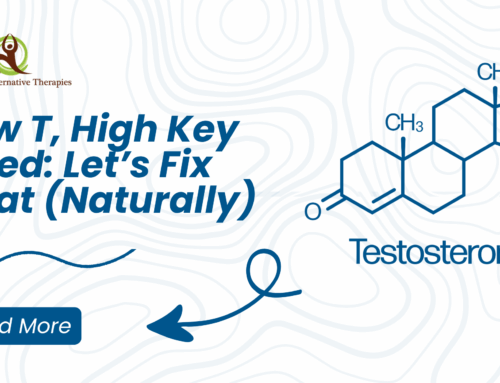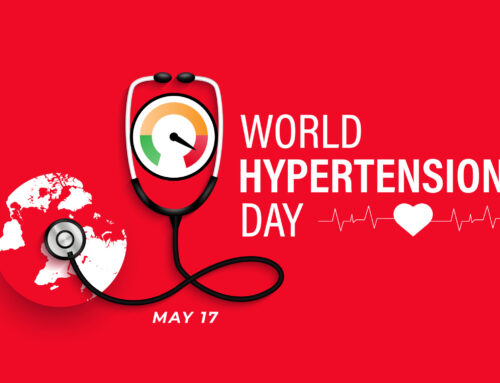Your Engine’s Fine, But When’s Your Last Oil Change?
Canadian Men’s Health Awareness Month
June is Canadian Men’s Health Awareness Month, and the Centre of Alternative Therapies is proud to support this important initiative by dedicating this article to empowering men to take charge of their health and well-being.
Historically, many men have placed less emphasis on their health, often delaying preventative care or routine check-ups. Men’s Health Awareness Month is a timely reminder of the importance of proactive health management, encouraging men across Canada to prioritize physical and mental wellness.
This month highlights the need for regular health screenings and check-ups for conditions such as prostate cancer, heart disease, and depression, common issues that often go undetected until serious symptoms arise.
While Canada ranks as one of the healthiest nations globally, many Canadian men still face significant health challenges:
- 29% are classified as obese (Public Health Agency of Canada, 2018)
- 82% do not meet recommended physical activity guidelines (Public Health Agency of Canada, 2018)
- 76% have unhealthy dietary habits (Public Health Agency of Canada, 2018)
- 35% report inadequate sleep (Public Health Agency of Canada, 2018)
Men also tend to access healthcare services less frequently than women and are more likely to die from preventable causes. These concerning trends underscore the importance of raising awareness and promoting healthier lifestyles through initiatives like Men’s Health Month.
By shining a light on these issues, we aim to inspire meaningful conversations and positive change in the way men approach their health, this month and beyond.
The Silent Crisis: Men’s Health in Canada by the Numbers
Research consistently shows that men in Canada experience poorer health and well-being outcomes across multiple areas:
- Suicide rates are alarmingly high among men, accounting for 3 out of every 4 suicide-related deaths.
- Men face higher mortality rates than women in several major health conditions, including cardiovascular disease, diabetes, and accidental injuries.
- Men aged 25–44 are four times more likely to suffer a heart attack than women in the same age group.
- Cultural associations between masculinity and alcohol use contribute to risky behaviours, over 23% of Canadian men report heavy drinking, particularly among those aged 18–34.
- Approximately 5.8% of men in Canada report experiencing sexual abuse during childhood, a trauma often underreported and undertreated.
- Life expectancy at birth is shorter for men (80 years) compared to women (84 years).
These statistics highlight the urgent need to reframe conversations around men’s health, promote early intervention, and create safe spaces for men to seek support and care (Government of Canada, 2021).
Are You at Risk? Take Charge of Your Health Today
Understanding your personal risk for common men’s health conditions is a powerful first step toward long-term wellness. Knowing which tests and screenings you need and when to get them can help you stay ahead of preventable issues (Government of Canada, 2021).
Make sure you’re up to date on:
- Blood tests
- Cancer screenings
- Physical exams
- Self exams
- Vaccinations
- Urine & stool tests
- Ultrasounds & scans
- Sexually Transmitted Infections (STI) tests
Mental Health Checklist
Assess how chronic stress and anxiety may be impacting your health with this simple checklist reviewed by a registered psychologist. Below are some of the common warning signs of chronic stress and anxiety included in the Men’s Health Checklist.
- Excessive worrying
- Doubting yourself
- Irritability
- Binge drinking
- Avoidance
- Sleep disruption
- Digestive changes
- Fatigue
Common Men’s Health Conditions You Shouldn’t Ignore
In Canada, men face higher mortality rates and life expectancy disparities compared to women, particularly for cardiovascular disease, diabetes, and accidents. Men are also more likely to die from cancer, especially prostate, colon, and lung cancer, and they experience higher rates of suicide. Mental health issues, including depression and anxiety, are also significant concerns for men.
Key Health Conditions and Considerations for Canadian Men:
- Mental Health: Men are less likely to seek help for mental health problems, leading to higher suicide rates and challenges with depression and anxiety. Men with depression typically have a higher rate of feeling irritable, angry, and discouraged.
- Cardiovascular Disease: Men are at a higher risk for heart disease and stroke, often at younger ages than women. Men are 2 times more likely to suffer a heart attack than women.
- Low Testosterone: Testosterone production in men begins to decline in middle age, with significantly low levels present in up to 20% of all men over age 70. Low levels may affect as many as 7% of younger men as well.
- Erectile Dysfunction: Close to 50% of Canadian men aged 40 – 88 have erectile dysfunction.
- Cancer: Prostate cancer is the most common cancer diagnosed in men, followed by non-melanoma skin cancer. Colorectal cancer Colorectal cancer is the second leading cause of death from cancer in men. Testicular cancer is the most common cancer in men 15 to 35 years of age.
- Diabetes: Men have a higher risk of developing type 2 diabetes. 35-45% of men with diabetes are affected by erectile dysfunction.
- Accidents: Including motor vehicle accidents, contribute to higher mortality rates in men.
- Osteoporosis: One in five Canadian men will suffer a fracture related to osteoporosis in their lifetime, and men account for 25% of the 30,000 osteoporosis-related hip fractures reported each year.
Final Thoughts: Your Health is Your Power
Evidence suggests that men will seek out and participate in health services when they are designed and delivered in ways that align with their preferences and interests. For example, activities that draw men together and that offer a context for integrating mental health promotion include sports, hobbies (gardening, woodworking, car mechanics), and other interests (mountain biking, surfing). This should be the approach to help men be more conscious about their health.
References
Afifi, T. O., MacMillan, H. L., Boyle, M., Taillieu, T., Cheung, K., & Sareen, J. (2014). Child abuse and mental disorders in Canada. CMAJ: Canadian Medical Association Journal = Journal de l’Association Medicale Canadienne, 186(9), E324-332. https://doi.org/10.1503/cmaj.131792
Canadian Diabetes Association. (2025). Sex & diabetes—What you need to know—Diabetes Canada. Diabetes Canada. https://www.diabetes.ca/en-CA/about-diabetes/impact-stories/sex-diabetes—what-you-need-to-know
Canadian Men’s Health Foundation. (2024, January 26). Men’s Health Checklist. https://menshealthfoundation.ca/mens-health-checklist/
Government of Canada. (2019, June 25). Heavy Drinking, 2018. https://www150.statcan.gc.ca/n1/pub/82-625-x/2019001/article/00007-eng.htm
Government of Canada. (2021, April 13). Leading causes of death, total population, by age group. https://www150.statcan.gc.ca/t1/tbl1/en/tv.action?pid=1310039401
Government of Canada, C. I. of H. R. (2021, November 22). Advancing Boys’ and Men’s Health: Outcomes from 11 years of CIHR-IGH Funded Research – CIHR. https://cihr-irsc.gc.ca/e/52717.html
Government of Canada, S. C. (2020, November 26). The Daily—Deaths, 2019. https://www150.statcan.gc.ca/n1/daily-quotidien/201126/dq201126b-eng.htm
Government of Canada, S. C. (2021, April 13). Deaths and age-specific mortality rates, by selected grouped causes. https://www150.statcan.gc.ca/t1/tbl1/en/tv.action?pid=1310039201
Health Canada. (2004, July 26). Just for You—Men [Navigation page;education and awareness]. https://www.canada.ca/en/health-canada/services/healthy-living/just-for-you/men.html
Oliffe, J., & Phillips, M. (2008). Men, depression and masculinities: A review and recommendations. Journal of Men’s Health, 5, 194–202. https://doi.org/10.1016/j.jomh.2008.03.016
Osteoporosis Canada. (2019, April 8). Men and Osteoporosis. https://osteoporosis.ca/men-and-osteoporosis/
Palmer, R., Smith, B. J., Kite, J., & Phongsavan, P. (2024). The socio-ecological determinants of help-seeking practices and healthcare access among young men: A systematic review. Health Promotion International, 39(2), daae024. https://doi.org/10.1093/heapro/daae024
Public Health Agency of Canada. (2017, August 22). Heart disease in Canada: Highlights from the Canadian Chronic Disease Surveillance System, 2017 [Education and awareness]. https://www.canada.ca/en/public-health/services/publications/diseases-conditions/heart-disease-canada-fact-sheet.html
Public Health Agency of Canada. (2018, June 11). Men’s Health Week [Statements]. https://www.canada.ca/en/public-health/news/2018/06/mens-health-week.html




